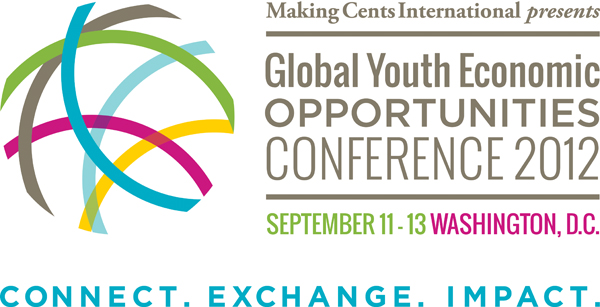Youth Economic Opportunities Conference: Phil Psilos (RTI) on youth workforce development
Insights from the 2012 Youth Economic Opportunities Conference
 September 11-13, 2012 | Washington, DC
September 11-13, 2012 | Washington, DC
At the Global Youth Economic Opportunities Conference, Phil Psilos of RTI International shared his insights on innovations and challenges in youth workforce development. By taking a thematic approach at this year's conference through the workforce development track, diverse organizations were able to share many examples and best practices.
Psilos highlights a project from RTI International and CARANA in El Salvador that has made a major innovation in terms of shortening the cycle time for training. Through this program, youth inducted into workforce development are placed into jobs within four weeks in many cases. In contrast to long-term training, this is a significant step in the direction of just-in-time workforce training to get youth who need jobs matched up with employers at exactly the right time. Psilos also discusses several challenges to youth workforce development, such as the constant struggle to engage employers effectively, as well as the need for incentives for labor market-driven training and skills provision from public institutions around the world. Watch to learn more.
Bio: Phil Psilos
Phil Psilos, Senior Economic Growth Specialist, is RTI’s project director for the RTI-funded collaborative research project “Global Value Chains and the Workforce,” conducted in collaboration with Duke University’s Center for Globalization, Governance, and Competitiveness. He currently manages RTI’s role in the USAID/El Salvador Access to Employment project, which focuses on creating partnerships with industry for demand-driven workforce development. Previously he has worked to align economic and workforce development at the National Governors Association, Regional Technology Strategies, Inc., and Deloitte & Touche. Psilos has designed and managed industry, regional, and national-level economic development studies and initiatives in Argentina, Cambodia, Finland, Philippines, Ireland, Jordan, Panama, South Korea, and numerous US states.


